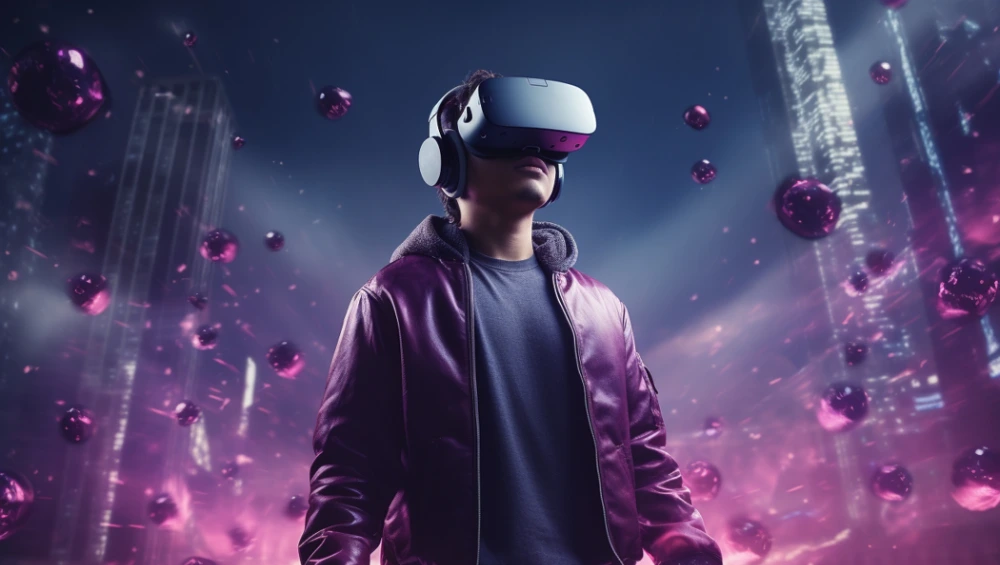What if your smartphone disappeared tomorrow? Don’t panic – that’s exactly what tech giants envision future beyond smartphones will look like. According to recent market research, smartphone sales have dropped 11.3% globally in 2023. And industry leaders know why. The golden age of phones is ending.
Tim Cook, Sundar Pichai, and Mark Zuckerberg all agree on one thing. The future beyond smartphones is coming faster than we think. But what does that mean for regular people like us? And should we be excited or worried about this massive change?
Why Are Tech Giants Envision Future Beyond Smartphones?
The smartphone market has hit a wall. Literally. After years of explosive growth, sales are slowing down everywhere from Silicon Valley to Seoul. Samsung and Apple released new phones this year, but people aren’t rushing to upgrade anymore. Why? Because phones all look the same now.
Steve Jobs changed everything with the iPhone in 2007. But that was 17 years ago. Since then, innovation has basically stopped. Sure, cameras got better and screens got bigger. But the core experience? Pretty much identical. Tech leaders like Elon Musk and Jensen Huang see this stagnation clearly.
The smartphone alternatives they’re developing aren’t just upgrades. They’re complete replacements. Companies like Google, Microsoft, and Meta are spending billions on post-smartphone technology. And they’re not doing it for fun – they see massive profits ahead.
What New Devices Could Replace Our Phones?
Augmented Reality Glasses are leading the race. Apple Vision Pro launched with mixed reviews, but it showed what’s possible. Meta Quest Pro and Microsoft HoloLens prove that mixed reality isn’t science fiction anymore. These devices put digital information right in front of your eyes.
But AR glasses are just the beginning. Neuralink, Elon Musk’s brain-computer company, wants to connect our minds directly to computers. Sounds crazy? Maybe. But early tests show promise. Patients can control computers with just their thoughts.
Wearable AI assistants are another big trend. Smart contact lenses from companies like Sony could display information without any visible hardware. Smartwatches are getting smarter, too. And foldable devices from Huawei and Samsung bridge the gap between phones and tablets. The future gadgets aren’t just smaller or faster – they’re completely different.
How Will This Future Change Daily Life?
Imagine working without ever looking down at a screen. AR glasses could show emails, calendars, and documents floating in the air. Video calls would happen with holograms instead of tiny phone screens. Remote work would feel like being in the same room with colleagues.
Shopping will transform completely. Point at any product and see reviews, prices, and comparisons instantly. No more pulling out phones to check things. Your AI companions could even order groceries automatically based on what’s missing from your fridge.
Healthcare gets revolutionized, too. Wearable devices could monitor everything from heart rate to blood sugar continuously. Smart homes would adjust temperature, lighting, and music based on your mood and health data. The post-mobile era promises seamless integration between humans and technology.
Which Companies Are Leading the Post-Smartphone Race?
Apple dominates current smartphones, but can it win the future? Tim Cook has bet everything on spatial computing and the Vision Pro. The device failed to catch on, but Apple’s not giving up. They’re working on lighter AR glasses for daily use.
Meta’s Mark Zuckerberg sees the metaverse as the answer. Their VR headsets are getting better and cheaper every year. Google’s Sundar Pichai focuses on AI-powered assistants that work across all devices. Microsoft’s Satya Nadella pushes enterprise solutions with HoloLens.
But don’t count out the underdogs. Chinese companies like ByteDance, Tencent, and Alibaba are moving fast. Startups funded by Jeff Bezos and Bill Gates are exploring brain tech and robotics. Even traditional companies like Intel and Qualcomm are reinventing themselves for this new world.
Should We Be Excited or Concerned About This Future?
The opportunities are incredible. Hands-free devices could help people with disabilities in amazing ways. Gesture control and voice-first computing make technology more natural and intuitive. Digital transformation could solve problems we didn’t even know we had.
But the risks are real, too. Privacy concerns grow when companies can literally read our minds. What happens when Neuralink or similar brain-computer interfaces get hacked? And device convergence could make us even more dependent on technology than we already are.
Human augmentation sounds exciting until you consider the social divide it might create. Will people who can’t afford the latest wearable AI be left behind? These aren’t small concerns – they’re questions that could define the next generation’s relationship with technology.
Conclusion
Tech giants envision future beyond smartphones as inevitable. Whether we’re ready or not, this change is happening. The post-smartphone era will bring amazing innovations and serious challenges. But one thing’s certain – our relationship with technology is about to change forever.








